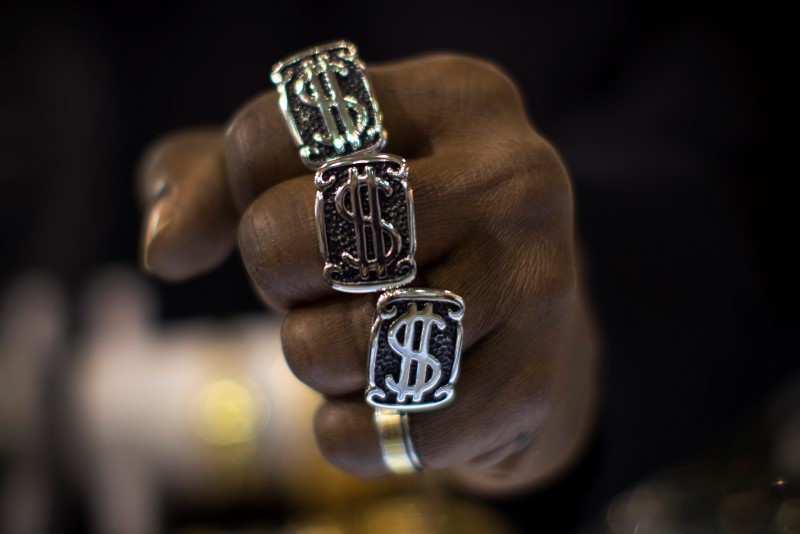By Ian Chua and Hideyuki Sano
SYDNEY/TOKYO (Reuters) - The dollar languished at more than three-week lows against a basket of major currencies on Monday after a strongly disappointing employment report prompted investors to rule out the chance of a hike in U.S. interest rates this month.
The dollar index stood at 94.161, having been as low as 93.855 on Friday - a level last seen on May 12. It tumbled 1.6 percent on Friday, posting its second biggest one-day drop this year.
Friday's data showed nonfarm payrolls increased by only 38,000 jobs last month, the fewest in more than 5-1/2-years, confounding forecasts for a rise of 164,000 jobs.
"Whichever way you cut it, Friday's U.S. nonfarm payrolls was a shocker," said Rodrigo Catril, currency strategist at National Australia Bank.
Investors have just about priced out the risk of a rate increase at the Fed Reserve's June 14-15 policy review, and reduced the likelihood of a July rate hike to around 30 percent from around 60 percent.
Many traders suspect Federal Chair Janet Yellen, who is due to speak on economic outlook and monetary policy to the World Affairs Council of Philadelphia at 1630 GMT, will craft her message to keep expectations for a July hike alive.
Against the yen, the greenback slid to a one-month low of 106.35 on Friday, before bouncing back to 106.84 yen in Asian trade on Monday, thanks to bargain-hunting after its big fall on Friday.
With the yen near its 18-month peak of 105.55 hit in early May, some traders are getting wary of threats of intervention from Japanese authorities.
"We are close the 105 handle, where Finance Minister (Taro) Aso talked about intervention last time. So there is a certain degree of cautiousness," said a trader at a major Japanese bank.
Japan's vice finance minister for international affairs, Masatsugu Asakawa, on Monday stuck to his usual rhetoric that he was closely watching movements in foreign exchange markets.
The yen also hit a three-year high of 120.83 per euro on Friday before stepping back to 121.50.
The euro held upper hand against the dollar, climbing to its highest in three weeks at $1.1375 on Friday though it has since drifted back to $1.1345.
The British pound briefly fell more than 1 percent in thin early Asian after several polls published during the weekend pointed to a recovery in support for the "Brexit" Camp. ()
Although a majority of market players think that British voters are more likely than not to vote for staying in the European Union, the latest polls suggest such an outcome is far from a done deal.
The pound last stood at $1.4393 after having fallen to as low as $1.4352, with its May trough of $1.4333 seen as an immediate support.
Commodity currencies benefitted from the broad decline in the greenback, though they gave up some of big gains made on Friday.

The Australian dollar surged nearly 2 percent on Friday but shed about a third of that gains in Monday Asian trade to trade at $0.7326.